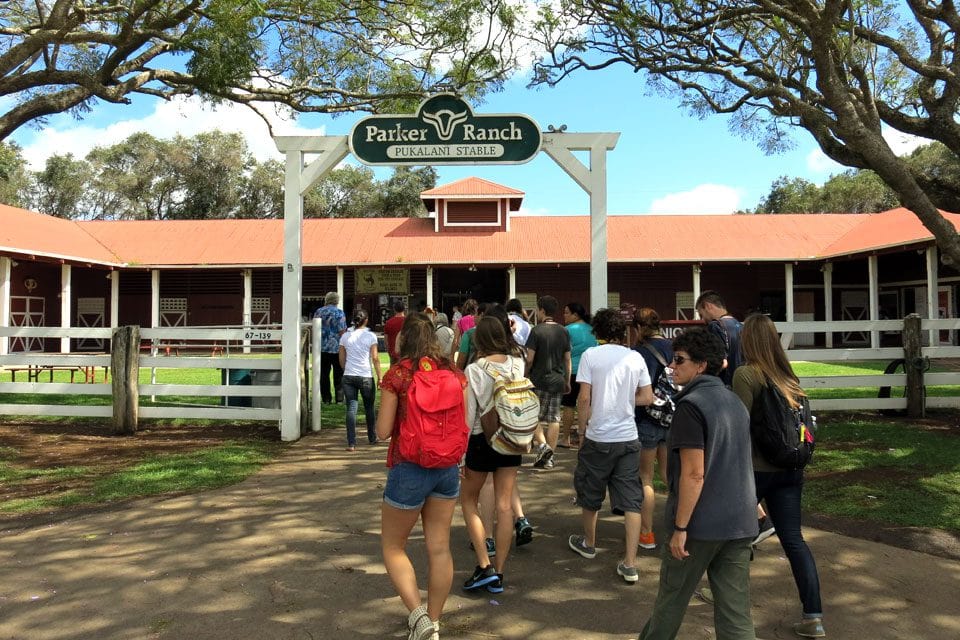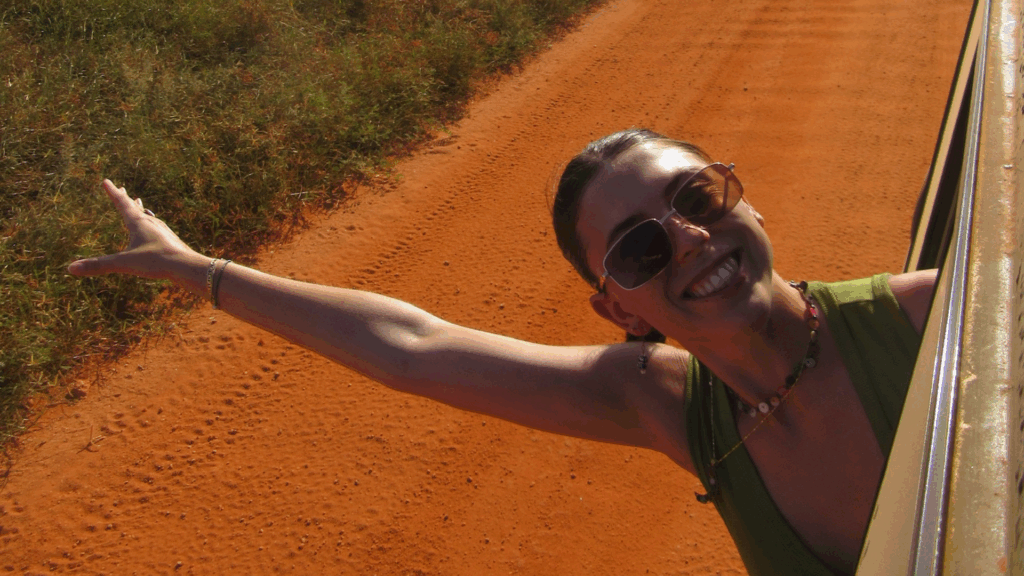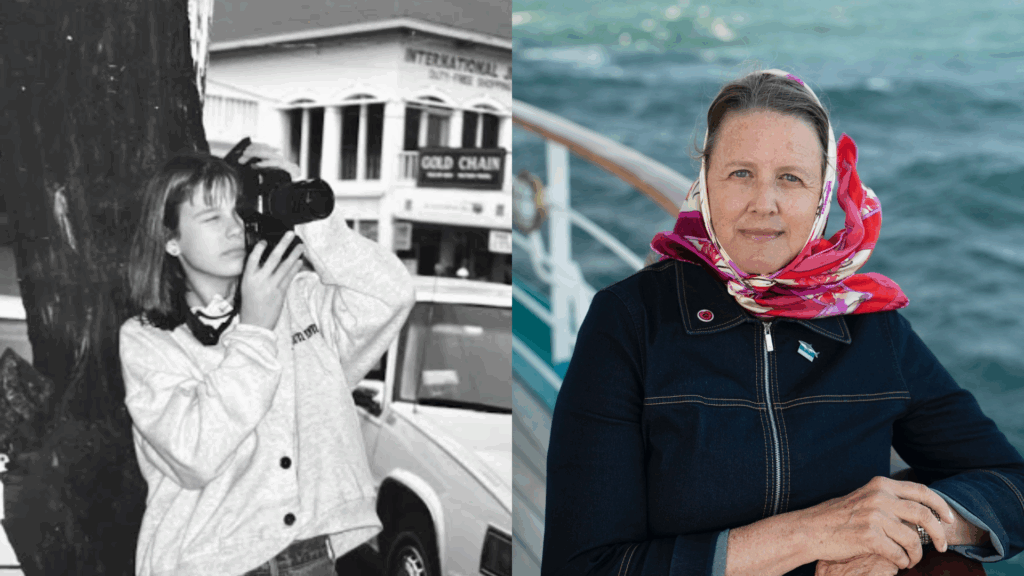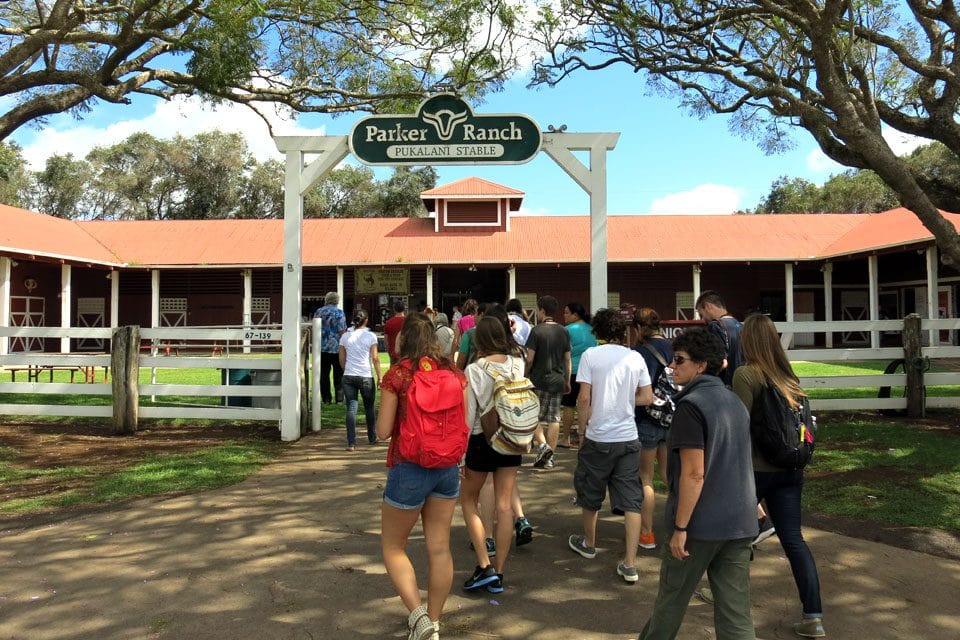
Students in Professor Jim Tueller’s Iberia in the World class spent a full day exploring the Big Island in Hawaii, learning how Iberia ‚Äì Spain and Portugal ‚Äì has spread its traditions, food, and even instruments to all corners of the globe throughout history.
The day began in the peaceful Liliuokalani Gardens. Kerri Inglis, an associate professor of history at the University of Hawaii, Hilo, and ten of her students, greeted Tueller’s class in silence. After a few moments, Tueller began an oli, or chant, that is a traditional introduction and sign of respect. Inglis’ class responded with their own oli before kissing the cheeks and placing leis around the necks of each SAS student.
In the shade of a banyan tree, Inglis explained the history, geology and mythology of Hawaii to the assembled group. After her talk, SAS students had a chance to get to know the Hawaiian students before everyone, including Inglis and five of her students, hopped onto a bus and left Hilo.
As the bus drove through the verdant green hills along the beautiful blue Pacific coast, students from the University of Hawaii informally presented what they were studying. A recurring theme in their academic pursuits was cultural preservation. By teaching in language immersion schools or receiving degrees in heritage studies, they all planned to educate a younger generation and keep their native Hawaiian culture alive.
This was a highlight for Josiah Savig of Colorado State University. “Interacting with the Hawaiian students and learning how they have passionately worked to preserve and promote their heritage is really admirable,” he said. In his own studies and observations, Josiah has noticed that, “It is common to see in this globalized world how youth in other countries want to adopt Western traditions and, unfortunately, forget where they come from.”
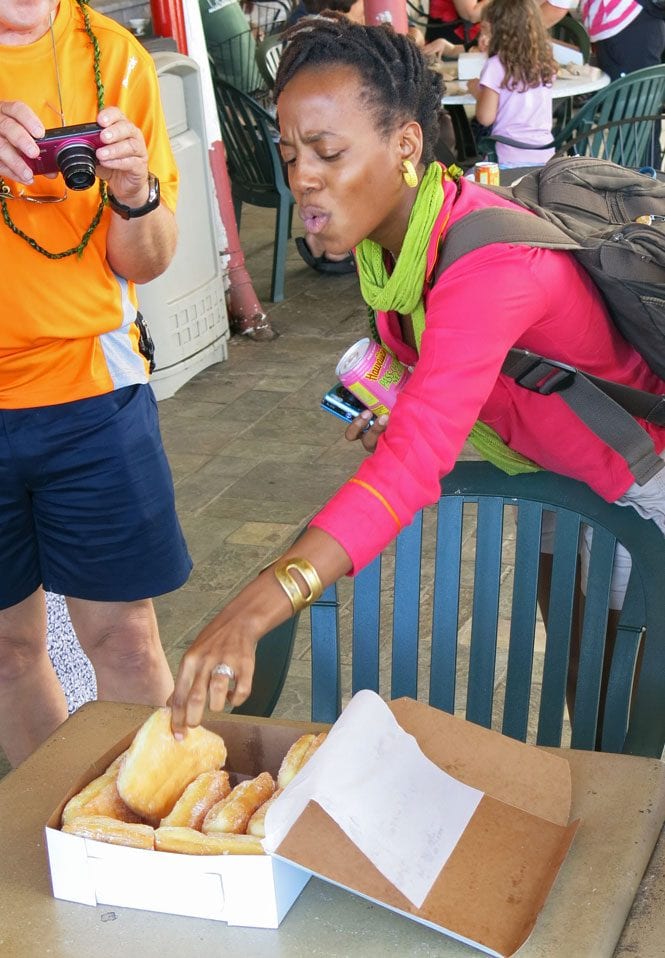
After about thirty minutes on the road, the bus pulled into Tex’s Drive In, a roadside restaurant known for its fresh, hot malasadas. This sugary, donut-like treat, which translates to “badly baked” in Portuguese, is one way that Iberian culture has remained in Hawaii for generations.
At the same time that there was an economic downturn in Portugal in the late 1800s, Hawaii’s sugar cane industry was booming and plantation owners needed some additional help. Portuguese families braved a long and harrowing voyage across the Atlantic Ocean, through the Straits of Magellan, and sailed north through the Pacific Ocean to finally arrive in Hawaii, ready to pursue a better life.
These ships brought not only Portuguese families but also foods from their homeland, such as malasadas. At Tex’s Drive In, students were able to taste this delicious example of cultural integration and understand that globalization has been taking place for much longer than is normally assumed.
Ian Jacobs, from Northern Arizona University, was interested to learn that other iconic elements of Hawaiian culture were also brought from afar. Ukuleles, surprisingly, have their origins in Iberia as well.
The braguinha, a four-stringed lute from Portugal, was introduced to Hawaii in the early 1800s. The native Hawaiians got a hold of one, gave it a different tuning, and renamed it the ukulele, which translates to what a person’s hand looks like when they strum it ‚Äì a “jumping flea.”
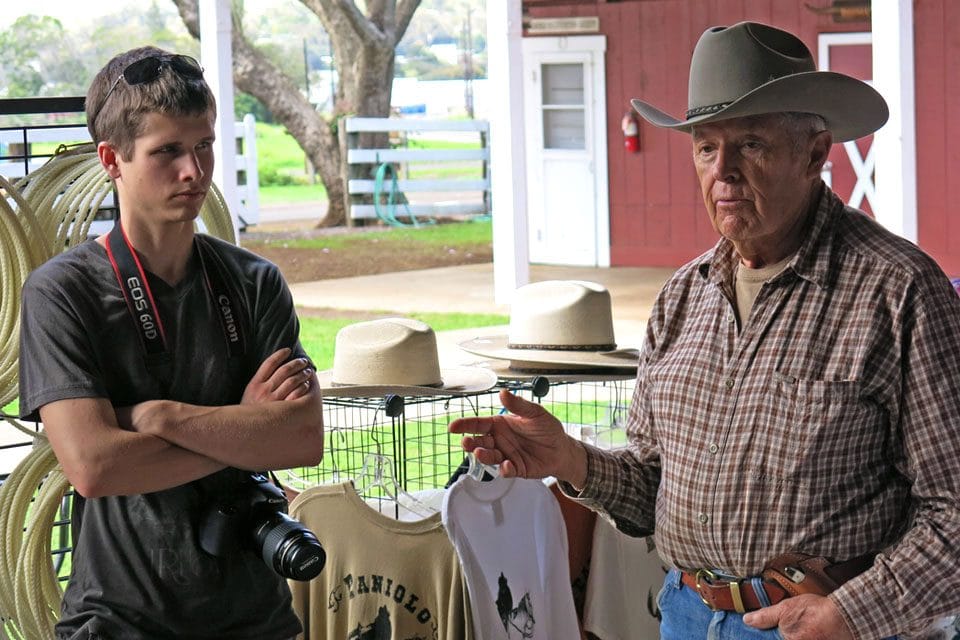
At the next stop, the stewards of the Paniolo Heritage Center at Pukalani Stables, brought the history of the Hawaiian cowboy to life. In the 1900s when a burgeoning population of imported European cattle overran Hawaii, the king realized he needed support. Vaqueros, or cowboys, from Mexico and California heeded his call and took the job of managing this overpopulation. Their name changed from vaqueros to paniolos while working in Hawaii.
The most common explanation of where the name came from is that it was an adaptation of the word Espa√±ol. The Hawaiian alphabet does not have an “s” and Hawaiian pronunciation requires that words end with a vowel. Therefore, the language of the cowboys, Espa√±ol (Spanish), was used as their official title to satisfy the rules of the native language.
For the rest of the semester, Tueller will be able to draw from this hands-on, experiential field lab to demonstrate how Iberian culture has contributed to and shaped other cultures over time in unexpected ways.
If the study of global history has taught me anything, it’s that there is much more that unites us than divides us.
– Jim Tueller, professor of history at Brigham Young University-Hawaii
